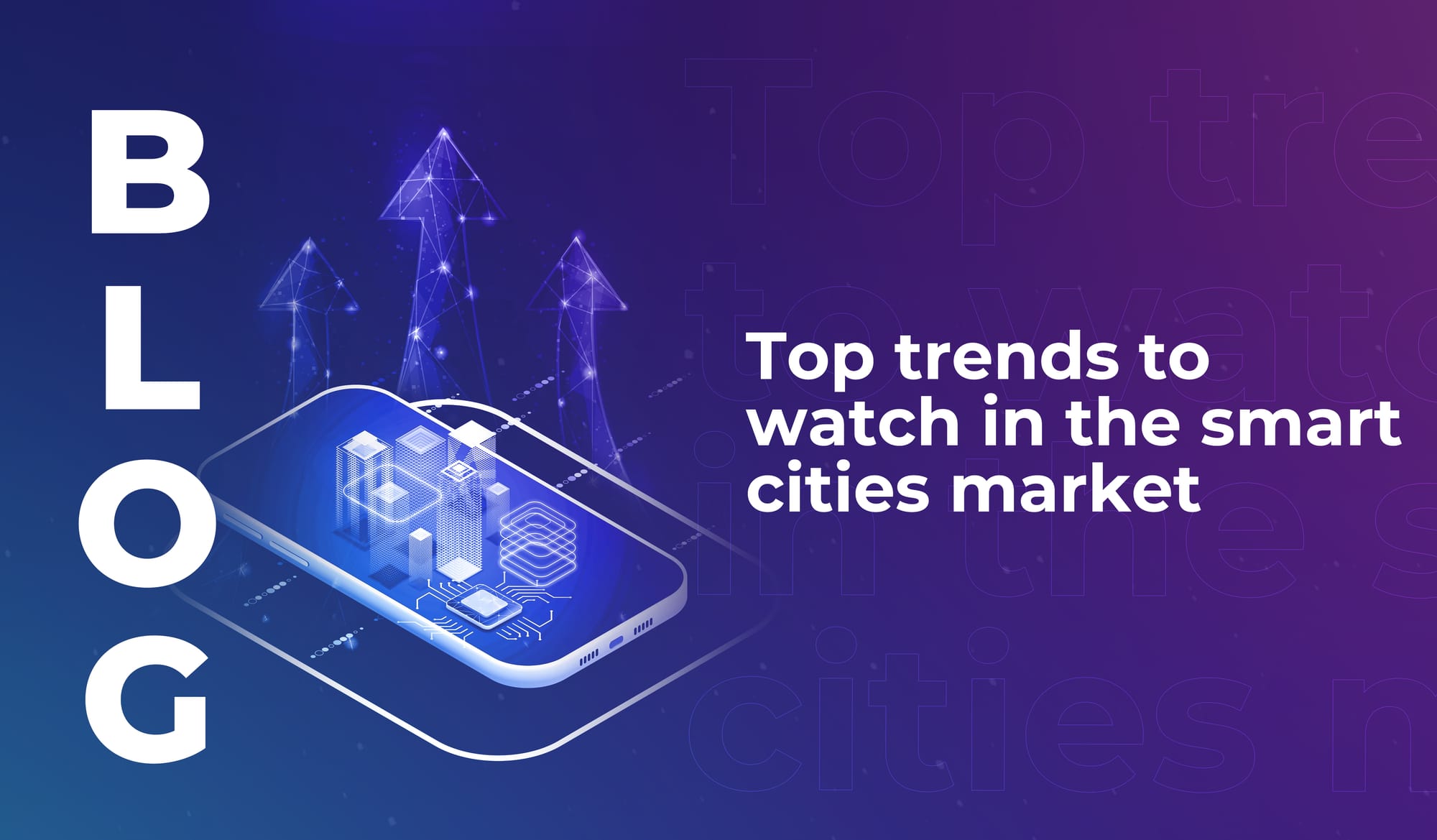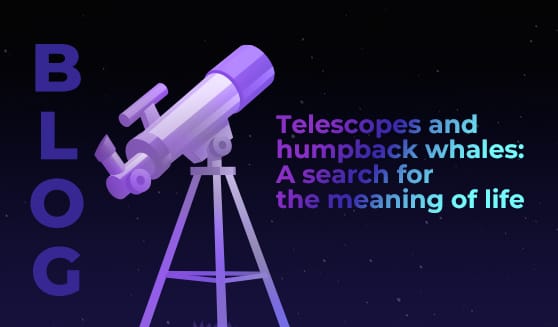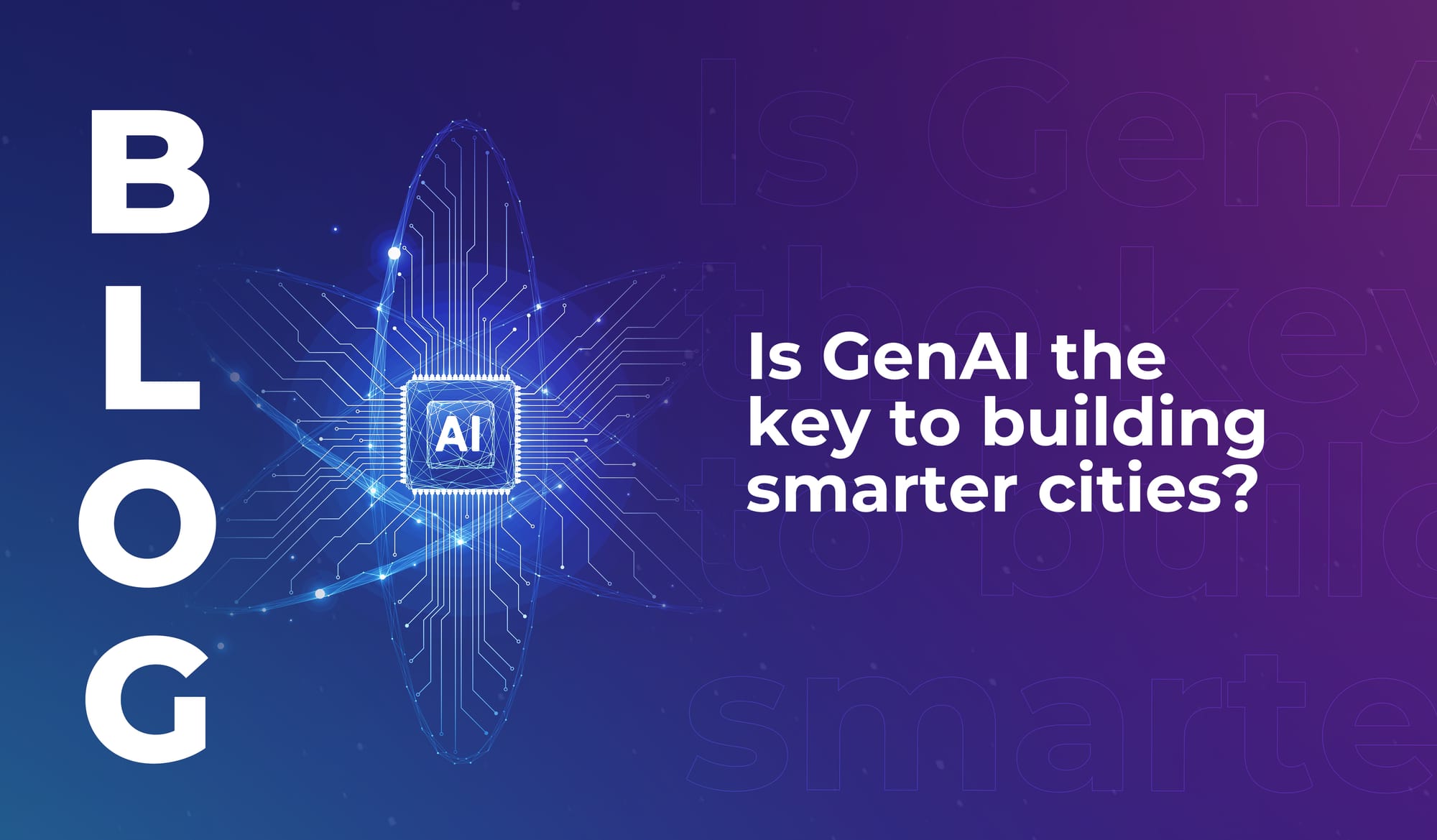
Top trends to watch in the smart cities market
Explore key smart city market trends for 2025–2030, from EV infrastructure to AI-powered waste systems – backed by the latest industry report.


How did we get here – and what’s the point in it all?
Since 1984, the SETI Institute has been dedicated to its mission to explore, understand, and explain life in the universe. With more than 100 scientists exploring everything from exoplanets to communication between different animal species, the institute isn’t afraid to ask the big questions that others try to avoid.
Before he arrived in Riyadh for LEAP 2024, we spoke to Bill Diamond (President and CEO at the SETI Institute) to find out what it’s like to lead an organisation with a truly existential purpose.
And fittingly, he reminded us that exploring the meaning of life isn’t about knowing the answers; it’s all about asking questions.
“Space exploration and space and Earth science are not only important for what they contribute to our understanding of the natural world and our place in the cosmos. They engage human curiosity and invoke a sense of wonder.
“The search for life beyond Earth teaches us a great deal about life and habitability on our own planet and it helps us understand what it means to be human. It is truly a privilege to have the opportunity to lead an organisation with such an inspiring mission and to work with such dedicated, passionate, and committed scientists, educators and staff. I am but their humble servant!”
“Our COSMIC project on the Very Large Array (VLA) operated by the National Radio Astronomy Observatory in New Mexico, is perhaps the most comprehensive SETI research project ever undertaken and is using one of the most productive and capable radio telescope arrays on Earth.
“COSMIC is a so-called ‘commensal’ observation program where we collect the entire field of view of the VLA radio telescope wherever they are pointing it for their primary science. It operates 24 hours a day, seven days per week, and our data ingestion rate is approaching 3TB per second!
“Having the ability to operate our own Allen Telescope Array (ATA) in Northern California, which is a world-class radio telescope specifically designed for SETI survey searches and technology development, and being able to operate COSMIC on the VLA truly advances SETI research to levels never previously attained. We are definitely excited by what we may discover with these searches.
“Another fascinating project is an endeavour by one of our scientists, Laurance Doyle, to study the vocalisations of humpback whales in an effort to understand the underlying mathematics and rule-structure associated with the transmission of information – regardless of the method or medium.
“Laurance is an astronomer and astrophysicist who has long been fascinated by nonhuman communications and the link to SETI research. He has partnered with a scientist at the Alaska Whale Foundation to study humpback whale communication by the deployment of hydrophone arrays in and around the waters of the Pacific Ocean off the coast of Alaska.
“By applying Information Theory to these whale communications, the research teams hope to determine if there are universal rules that apply to information transfer that would then presumably apply to any and all communications – including those of alien civilisations.
“There are myriad other programs, including the application of machine learning to hyperspectral data sets for Mars, Moon and Earth studies; research in the Antarctic to study basic life forms (cyanobacteria) in extreme environments to understand the size of the envelope of conditions under which life can develop and exist; the development of highly sensitive Raman spectrometers to detect organic compounds on future missions to Europa or Titan – and so much more.”
“I believe it is human nature to constantly strive to invent and develop improved and enhanced tools and capabilities. It is part of our DNA to be curious, but I think also to invent. From the development of the very first primitive tools of shaped rock for hammering, cutting, and breaking, we constantly develop new tools and we develop new enhancements to existing tools.
“The invention of the semiconductor and subsequent inventions of the microchip, the computer, and even AI are simply modern extensions of these basic human characteristics.
“It is true, however, that with AI, machine learning and advanced robotics, we may ultimately be developing improved versions of ourselves – and our own evolution may be written in the language of AI, taking us from the biological to the hybrid to ultimately fully synthetic versions of human beings!”
“I think I knew, but I probably didn’t appreciate how important it is to pursue one’s passion, and if possible, to pursue or create career opportunities that embrace those things we find most exciting and interesting.
“I am far away from the world’s most clever person, but I think I knew, and appreciate now more than ever, how important it is to never stop asking questions. Indeed, I have really grown to appreciate that science is not about providing answers, but rather, it’s about asking questions – and asking the right questions! And…each new answer we obtain simply raises ten new questions.”
“LEAP is an extraordinary opportunity to connect with a global community of technology leaders and practitioners.
“The most meaningful things we do at the SETI Institute are all based on collaboration and partnership with other organisations. I look forward to being able to meet new people, learn of new organisations and endeavours that might be synergistic or complimentary to our own work, where working together could yield impactful results far better than we can achieve on our own.
“I also hope to convey to such an influential audience, the importance of STEM education and science literacy for ALL people! The challenges we face as a species and the problems we need to address will only be successfully dealt with if we have a global population who are educated and who understand the basic principles of mathematics, science, technology, engineering, and also the arts.
“We don’t need to make everyone a scientist, but – we do need to enable everyone to evaluate the world based on facts and evidence and not on conspiracy theories, dangerous fiction and nonsense.”
Thanks to Bill Diamond at the SETI Institute. Did you miss LEAP 2024? Don’t worry! Meet us in Riyadh for the 2025 edition – pre-register now.

Explore key smart city market trends for 2025–2030, from EV infrastructure to AI-powered waste systems – backed by the latest industry report.

Learn how generative AI is unlocking the true potential of digital twins – to make smart cities more efficient, inclusive, and citizen-focused.

The smart cities of the future will use tech to lower emissions, cut urban temperatures, and improve quality of life in highly populated areas.

Explore key smart city market trends for 2025–2030, from EV infrastructure to AI-powered waste systems – backed by the latest industry report.

Learn how generative AI is unlocking the true potential of digital twins – to make smart cities more efficient, inclusive, and citizen-focused.

The smart cities of the future will use tech to lower emissions, cut urban temperatures, and improve quality of life in highly populated areas.